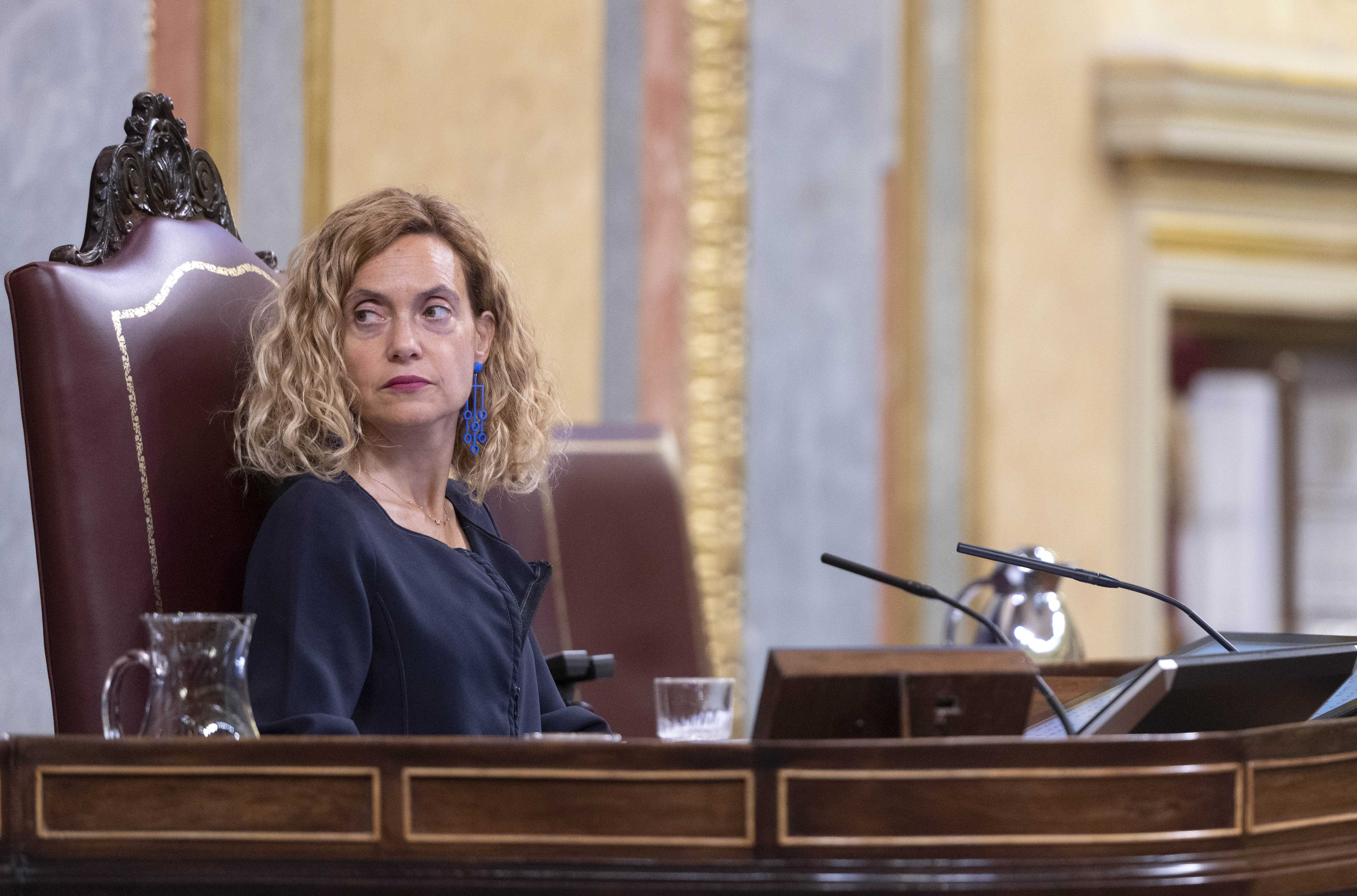The current speaker of Spain's Congress of Deputies, the Catalan Socialist (PSC) politician Meritxell Batet, has decided to step aside, pulling out of the complicated race to preside over the Congress, ten days before the new speaker and the other eight members of the lower house's organ of governance, the Bureau, are chosen. As PSOE sources confirm, Batet prefers to close her period as speaker and not continue in the position, with the prospect ahead of a delicate legislature due to the fragile majorities that are likely if Pedro Sánchez manages to be re-invested as Spanish prime minister. Thus, the Socialists are now looking for another candidate to head the third most important institution in the state.
According to the same Socialist sources, "Batet states that it has been a great honour to have developed the responsibility and shows enormous gratitude for all the support received over the years." In this regard, Batet is "convinced" that there will be a progressive majority in the lower house's Bureau, presided over by a Socialist speaker, and affirms that the new legislature will be "a sign that the Socialist project led by Pedro Sánchez is the one that offers the best solutions to the problems faced by citizens".
The negotiations over the membership of the nine-member Bureau, to be voted on by MPs when Congress in constituted on August 17th, are the main focus of parliamentary activity this week. The PSOE is convinced that it will manage to lead Congress once again, despite the fact that it will have to argue its case well with all its potential parliamentary allies. In fact, this Monday, the representative of the Catalan Republican Left (ERC) and negotiator with the PSOE, Teresa Jordà, asserted in an interview with El Periódico that either a Catalan or Basque pro-independence party, or the other Basque nationalist group, the PNV, will have a place on the congressional Bureau. However, what emerges from this negotiation will give clues as to how the formation of a new government is progressing.
Batet was the list leader for the PSC in Barcelona for the general elections of April and November 2019 and again for those held this July 23rd. In this year's election, the Catalan Socialists swept Catalonia, benefiting from the decline of votes for all the pro-independence parties. It was the PSC's first victory in Catalonia in a Spanish general election since 2008, obtaining 19 seats, seven more than in 2019, and attracting 1,200,000 votes in the four Catalan constituencies. These results helped Pedro Sánchez avoid the widely-forecast calamity on 23rd July. Batet served as territorial minister from June 2018 when the Socialists came to power, and then became speaker of the Congress of Deputies after the elections of April 2019. Over the four years, Batet has struggled with a hostile legislature, with moments of great tension arising from unprecedented situations, such as the Covid-19 pandemic.
On August 17th, the 350 MPs in the lower house will vote for a speaker for the new Congress, as well as deciding the four deputy speakers and the four secretaries of the Bureau. Obtaining a majority for the left bloc in the parliamentary governance organ will be of key importance for the prospects of this delicate legislature, and the Socialists have talks open with Sumar, ERC, Junts, EH Bildu, the PNB and the BNG. A multi-party agreement would allow five of the nine Bureau positions to be retained, with the other four likely to go to the PP and Vox if the right also votes with a coordinated strategy. In any case, the PP intends to present Ana Pastor, former speaker under the Rajoy adminstration, as their candidate to preside over the lower house. The talks between the PSOE and the pro-independence parties could also allow ERC and Junts to horse-trade their way to having their own parliamentary group, although the numerical results of July 23rd do not give them sufficient seats to have access to one.

